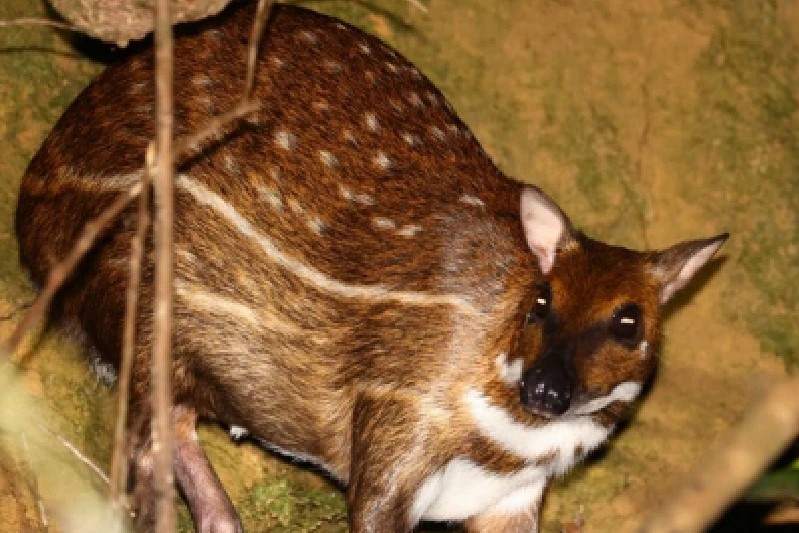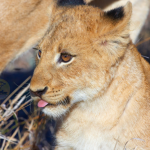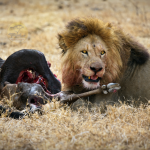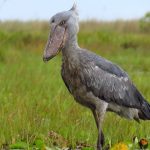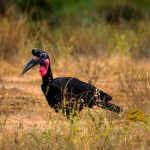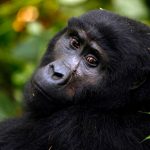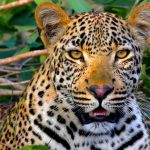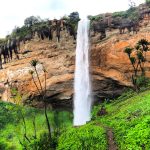Water Chevrotains of Uganda: The Secret World of Africa’s Small Deer.
Water Chevrotains in Uganda: (Hyemoschus aquaticus). Uganda, with all its diverse ecosystems and fauna, shelters in its precincts one of the most interesting yet often-overlooked animals: the water chevrotain. Often referred to as Africa’s smallest deer, these shy and small mammals play an important part in the country’s ecosystem. This article shall try to peek into the world of the water chevrotain by touching on their habitat, behavior, conservation status, and efforts done in protecting these amazing creatures in Uganda.
Overview of Water Chevrotains.
Water chevrotains, scientifically referred to as Hyemoschus aquaticus, are small ungulates of the family Tragulidae. While they actually do look like any other deer, they are not true deer but actually much closer to hippos and whales. They occur in the dense forests of sub-Saharan Africa. More specially adapted is the water chevrotain to life along water bodies, where it can always feel safe and have a constant source of food.
Habitat and Distribution.
Different landscapes of Uganda allow for a perfect environment for water chevrotains. They show their main areas of prevalence within the thick tropical rainforests and swampy regions of the southwestern and western areas of the country. Among the main key places where these animals can be encountered are Semuliki National Park and Mgahinga Gorilla National Park.
Physical Characteristics.
They are small animals that usually weigh between 7 and 14 kilograms. They have compact bodies with short legs and a reddish-brown coat, featuring distinctive white stripes on the throat and around the eyes. The hoofed feet of water chevrotains are adapted to move around on the forest floor and marshy terrain.
Behavior and Adaptations.
Small chevrotain, shy, and hardly observable. It usually avoids human eyes in dense vegetation. Water chevrotains are good swimmers, so most of them would prefer to live near water outlets to enable them to escape from their enemies and feed on aquatic vegetation. Leaves, fruits, and small aquatic plants make up the diet of chevrotains. They are mostly night animals; the darkness enables them to eat and avoid predators.
Conservation Status of Water Chevrotains in Uganda.
In Uganda, the water chevrotains (Hyemoschus aquaticus) face different threats due to deforestation and poaching, as well as human invasion into their habitats. For these threats, water chevrotains are listed in the IUCN as Near Threatened. Key conservation efforts are much needed if they are to survive and balance the ecosystem.
Conservation Initiatives in Uganda.
Different organizations and various government agencies in Uganda have been quite concrete in efforts to protect the water chevrotain and their habitats. Strategies and measures include the establishment of protected areas, anti-poaching patrols, education in the communities, and research to enhance ecological knowledge and the habits of such shy mammals.
Challenges and Future Outlook.
Despite the conservative efforts on the ground, water chevrotains are among the threatened animal species in Uganda. Major ones include habitat loss, climate change, and poaching. This calls for a joined effort by the community, government agencies, and international organizations for their sustainable conservation in Uganda.
Remarks on Water Chevrotains in Uganda.
Though small in size, the water chevrotain contributes quite significantly to biodiversity in Uganda. It is hoped that with increased protection of their habitats and heightened awareness regarding their importance, these great animals will continue to live in the heart of Africa. Appreciating the existence of water chevrotains shows valuing their existence; Uganda joins the rest of the world in this important cause of conserving unique and rare species, hence maintaining delicate ecosystem balances.


